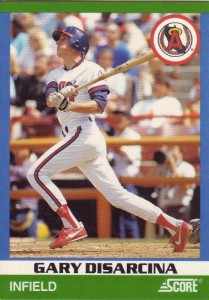Independent Baseball (Never Played)
Background
Last September, my wife and her sister entered a team in Pigskin Fantasies, the fantasy football league of which I have been a member for 10 years. The $140 entry fee was a modest investment compared with the $700 million that Bob McNair forked over for the NFL’s most recent expansion team, the Houston Texans, in 2002. Nevertheless their team, “Mayhem & Foolishness” shared a few of the basic trappings of a real professional football franchise: they drafted players, generated a modest revenue stream, established an online presence, and even created their own apparel – long sleeved t-shirts featuring the pirated likenesses of Bert and Ernie from Sesame Street.
For the record, Mayhem & Foolishness posted a record of 2-12 in 2011 and an operating loss of about $100. Now I know that my wife and my sister-in-law don’t think of fantasy football in terms of net profits. If they did, they wouldn’t have stuck with Ryan Fitzgerald down the stretch this fall. My wife is an entrepreneur, however. She runs her own psychotherapy practice and she identifies herself, with good justification, as both a therapist and a small business owner.
But what if my wife got it into her head that she was fundamentally in the business of fantasy football ownership – i.e. a professional gambler? At what point does an idea become an enterprise? When a business goes bankrupt the precise condition and timing of its demise is recorded. But can a dream that fails to catch fire ever cease to exist? If a friend insists that they are, despite all evidence to the contrary, a classic car mechanic or a bounty hunter or a professional magician, who am I to say otherwise? Maybe business is just really slow.
Consider the long, strange journey of the Plymouth River Eels, a proposed independent baseball team in Southeastern Massachusetts that insisted it was in business for upwards of four years but never truly was. Founded in 2005, the River Eels did almost everything you’d expect a minor league baseball team to do. Everything except play baseball games. They conducted clinics and name-the-mascot contests for local school children. They had architectural renderings and hired a groundskeeper and even commissioned a team song. At one time, the River Eels claimed over 1,500 season ticket reservations and signed 10-year sponsorship deals with local car dealerships and insurance agencies. As late as 2010, one team official continued to promote merchandise for the River Eels on Twitter.
When it comes to the Plymouth River Eels, two things are certain. The River Eels never played a game of baseball. And for (at least) three summers, the River Eels were Plymouth’s home town ball club. Only one of these statements can be true, but neither of them is wrong.
Massachusetts State Representative Tom O’Brien announced the formation of Bay Colony Baseball and Athletics, LLC and the Plymouth River Eels baseball club in November 2005, flanked by business partners Mike Rothberg and Erik Christensen. At the introductory press conference, the trio unveiled architectural drawings for a privately funded 5,500 seat ballpark with adjacent convention center and restaurant. Total price tag: an estimated $34.5 million. The River Eels expected to throw out their first pitch in May of 2007.
The Eels drew inspiration from the success of the nearby Brockton Rox of the independent Can-Am League. During the summer of 2004, the three-year old Rox drew 204,000 fans to Campanelli Stadium, an $18 million ballpark and convention center complex built in 2002. The Rox also ran the Campanelli Stadium concessions business, and grossed over $100,000 a night when Bob Dylan, Willie Nelson and Def Leppard came through town on summer ballpark tours in the mid-2000’s.
But if the Rox offered a tempting model they also presented a problem: proximity. Campanelli Stadium is only 35 miles from Plymouth and the Rox tapped into the bedroom communities along the Route 3 corridor to Plymouth for a significant portion of their fan base. If Bay Colony Baseball and Athletics wanted a Can-Am League membership, it was going to have to buy the Rox’ permission.
Rox management was divided on the River Eels. The team’s out of state owners and advisors were skeptical of the project and of opening the market to a potential competitor. But Rox President Jim Lucas wanted to work with the River Eels on a deal. The Rox would help broker the acquisition of the Can-Am League’s struggling Elmira Pioneers franchise for somewhere between $500,000 and $750,000. On top of that, the the River Eels would pay a six-figure annual territorial rights fee to the Rox for several years. Lucas and O’Brien negotiated until August 2006, when the Rox abruptly ousted Lucas. Two months later The Brockton Enterprise reported that the former Rox President was under investigation by the Plymouth County District Attorney. Lucas was indicted by a grand jury in 2007 for allegedly embezzling approximately $50,000 from his former ball club. The charges were later dismissed. But with Lucas gone, negotiations with the Rox and the Can-Am League ended for good.
 In 2006, the River Eels reached agreement with former California Angels shortstop Gary DiSarcina to manage the ball club, but on the eve of that announcement the Boston Red Sox offered DiSarcina a managerial post in their farm system. The River Eels let him go and it was just as well. The planned May 2007 debut came and went with no league membership, no groundbreaking and no deal to purchase the 28 acre parcel of land eyed for the ballpark.
In 2006, the River Eels reached agreement with former California Angels shortstop Gary DiSarcina to manage the ball club, but on the eve of that announcement the Boston Red Sox offered DiSarcina a managerial post in their farm system. The River Eels let him go and it was just as well. The planned May 2007 debut came and went with no league membership, no groundbreaking and no deal to purchase the 28 acre parcel of land eyed for the ballpark.
“We haven’t heard from them in more than a year,” Plymouth Planning Director Lee Hartmann told a journalist in February 2008. (Patriot-Ledger 2/9/2008).
But the team continued to market itself in the community, hosting a used equipment drive and later a baseball clinic in January and February 2008. The team inked a 10-year sponsorship deal with a local Chevy dealer to sponsor the dugouts tops at the ballpark.
In May 2008 activity ticked up once again as the River Eels signed a purchase and sale agreement to acquire the stadium land for $5.1 million. By this time Bay Colony Baseball and Athletics was up against a deadline – the company needed to file a written plan for the property by June, or else lose favorable tax breaks approved by local voters in October 2007. But the land deal blew up for unspecified reasons on the day of closing. By this point, the looming economic crisis began to impact the project as well. Stadium contractor Payton Construction, the firm that built Brockton’s Campanelli Stadium, filed for bankruptcy and closed its doors in September 2007, leaving the River Eels without a builder.
After the land deal collapsed in May 2008, the River Eels went silent again, as they had for much of 2007. The last media article published on the team arrived in June 2009, in which River Eels Vice President Mike Rothberg insisted the project was still a matter of when, not if. River Eels front man Tom O’Brien was notably absent from that article.
Today, the River Eel has become more of a Loch Ness monster – an acknowledged myth that periodically raises its head in view of a few onlookers. O’Brien is now the Treasurer of Plymouth County. He has not commented in the press about the River Eels since May 2008. As late as March 2010, team co-founder Mike Rothberg posted an update on his Twitter account plugging a new and improved version of the River Eels website. However, that website finally came down later in 2010, nearly five years after the launch of the team.
The idea of the River Eels seems to have finally met its end sometime in 2010 or 2011 . On the other hand, the team remains only one tweet, one Facebook post, or one $25 box of business cards away from a return to its former condition.
Update! (1/17/12)
The River Eels live?! A member of the Futures Collegiate Baseball League writes in to say that a man with Plymouth River Eels business cards attended an organizational meeting for the start-up collegiate wooden bat league in December 2010 or January 2011. But the new league debuted in the summer of 2011 and has since conducted another round of expansion for 2012 and a Plymouth River Eels entry has yet to surface.
##



One Response